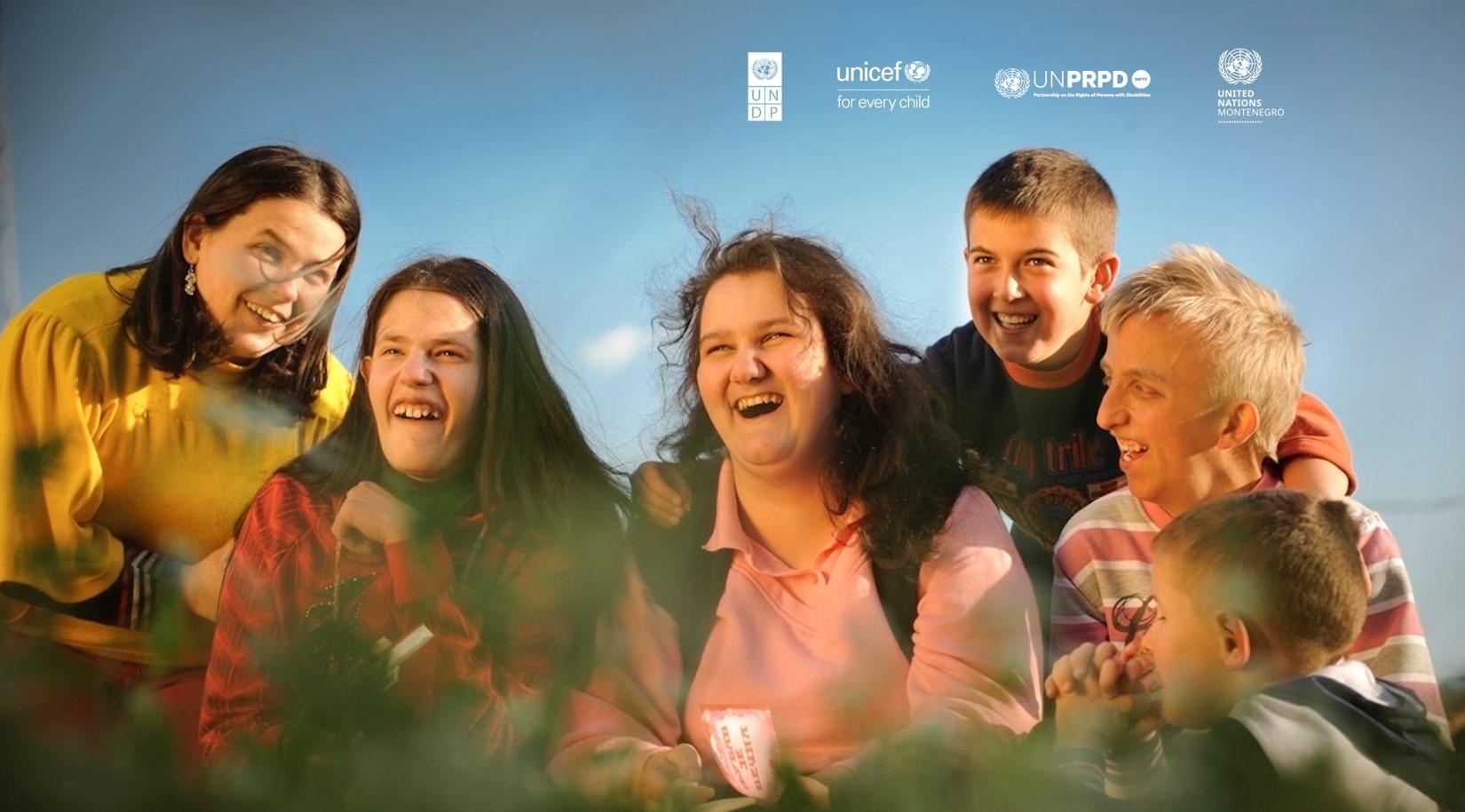Accelerating Disability Inclusion for Children and Adults with Disabilities in Montenegro
The 2022-2023 joint UN project “Accelerating Disability Inclusion of Children and Adults with Disabilities” focuses on promoting the rights of persons with disabilities in Montenegro.
The project was preceded by Inception Phase in 2021, when different government stakeholders, Protector of Human Rights and Freedoms of Montenegro, persons with disabilities, organizations of persons with disabilities and associations of parents of children with disabilities were consulted on priority areas. Based on their inputs, UNICEF, UNDP and Human Rights Adviser in the Resident Coordinator’s Office (RCO) in Montenegro, developed a two-year project, funded by the UN Partnership on the Rights of Persons with Disabilities (UNPRPD).
Background
Montenegro ratified the Convention of the Rights of Persons with Disabilities (CRPD) and its Optional Protocol in 2009. Since then, the country has made progress in promoting the rights of adults and children with disabilities. However, challenges remain:
- A considerable number of adults and children with disabilities live in institutions, some of them have been there for decades, where they are not able to exercise their rights on the same basis as others. Conditions in institutions in Montenegro are not adequate. Others are at risk of institutionalization because community-based services are not yet available or adequate.
- Many of those at risk of institutionalization are children without parental care, children with disabilities and adults with disabilities who are unemployed.
- A considerable amount of state funding is used for institutionalization rather than for more community-based services.
- There is not enough data on the needs of adults with different types of disabilities for community-based support.
- There is not yet a minimum package of family and community-based services for children with disabilities and their families.
- Montenegro does not yet have disability-inclusive budgeting guidelines and practices in accordance with the CRPD.
- While independent monitoring of the rights of persons with disabilities is carried out, there is no systematic, meaningful involvement and participation of organizations of persons with disabilities and associations of parents of children with disabilities in such monitoring today.
Expected results
This initiative will support the Government of Montenegro to prevent the placing of children and adults with disabilities in institutions, and facilitate their transition to existing and potentially new family and community-based services.
The initiative will foster better intersectoral cooperation and improve the capacities of different actors working with persons with disabilities to prevent institutionalization.
Legislation on professional rehabilitation and employment of persons with disabilities will be revised to provide recommendations for deinstitutionalization, prevention of institutionalization and support for independent living.
Needs of adults with disabilities will be assessed to help the process of designing new or strengthening existing community-based services, with the overall aim of improving their chances for a decent life, employment, activation and independent living. To do so, a minimum package of family and community-based services will be developed and services to support children and adults’ independent living/activation will be piloted.
Guidelines for disability-inclusive budgeting in accordance with the CRPD will be developed to ensure additional targeted support to children, adults with disabilities and their families, in particular at the community level.
Closer engagement between organizations of persons with disabilities, associations of parents of children with disabilities and Protector of Human Rights and Freedoms of Montenegro will be facilitated through establishment of an independent monitoring mechanism to oversee the implementation of CRPD in the country.
The United Nations in Montenegro will strengthen participation and inclusion of persons with disabilities, women and men, children with disabilities and their parents in the UN programmes through activities implemented in cooperation with organizations of person with disabilities and associations of parents of children with disabilities.










